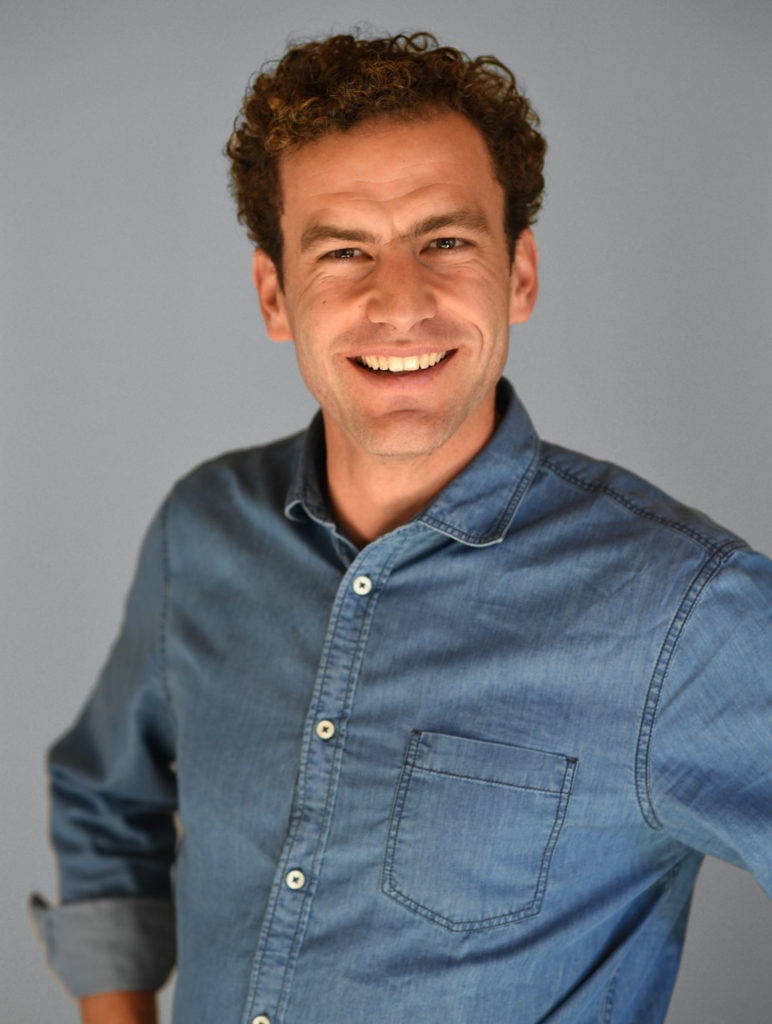Quantis CEO Dimitri Caudrelier has a vision for a planetary economy that aligns business with nature — business at its best. He shares his insights on what it will take to usher in this new era for business and how Quantis is fueling this transition with purpose, partnership, innovation and optimism.
+ You've spent the last 12 years of your career at Quantis. What has made you stay?
My strong belief in our mission, our scientific core and our amazing team. I truly believe that we have the ability to shift business and the economy as a whole from a profit-at-all-costs model to one that operates within planetary boundaries — a planetary economy where business works with, not against, nature. This conviction is shared across the company and it’s what drives us. And it’s strongly linked to our scientific roots. Quantis was founded on the belief that science can point business towards true sustainability by showing us the level of change needed to operate within the limits of the planet and the steps needed to get there. And the science is getting better every day, providing us with more clarity and deeper understanding.
Achieving this vision won’t be possible without collective action and intelligence. We believe that we’re part of a global movement for systemic change and this really guides how we work at Quantis — both internally and externally. Working not just with clients, but with sustainability scientists, experts, NGOs and competitors allows us to scale our impact.

Operating within the means of the planet is what needs to be leading businesses, both now and in the future. This shift will require courageous leadership and profound transformation of operating models and value propositions.
+ How would you describe the Quantis Spirit?
It’s our culture — our mindset, energy and way of working. It’s not something that appears in a corporate slidedeck, it’s our nature, how Quantisians are all together. We’ve built this collaborative, positive and dynamic environment that allows ideas and innovation to thrive. It’s fueled by this strong internal desire to keep learning, growing and finding ways to scale our impact and go even further with our actions.
+ What are you most proud of in terms of what you and your team have achieved at Quantis?
I’m really proud of how far we’ve come over the last 15 years. We started out as a small spinoff of the Swiss Federal Institute of Technology Lausanne (EPFL) with just a handful of people with a lot of knowledge of environmental issues and life cycle assessment. Today, we’re a team of over 200 people — environmental engineers, business strategists, communications specialists, IT developers, former corporate sustainability professionals and more — and we reach CEOs and leaders around the world, supporting them on their sustainability trajectories. This growth has happened organically and we’ve remained independent through it all. It’s a pretty big achievement. Many of the first Quantisians are still around today and are still working with the same level of conviction they had on day one.
+ Before becoming CEO, you were director of Quantis France. How did you plan to lead differently as CEO? What has surprised you about the CEO role that you didn’t anticipate?
I really enjoyed leading Quantis France for five years. During that time we built a strong team of incredibly smart and talented people. Together, we established a culture and way of working that allows us to find solutions to serious challenges without taking ourselves too seriously. This really allowed us to build strong relationships of trust with our clients. I am still based in Paris and close to this team that I’d grown to love.
I’ve always been energized by connections — connecting great people or even connecting problems with solutions so we can make a bigger impact at Quantis to build a sustainable future. When I stepped into the role of CEO in 2020, I really wanted to maintain the same connection with Quantisians as I had as director of Quantis France. I set up one-on-one discussions with as many Quantisians as possible to learn about and understand the entire Quantis ecosystem — what makes each branch tick. I truly believe that we are stronger together, so I wanted to make sure Quantisians were really onboard before making any big decisions. The process really opened my eyes to the specificities of each market, but it also showed me the high level of ambition and conviction we have at Quantis. Each discussion made me proud of our company and what we’re collectively working towards, and grateful to have the chance to lead this incredible team. I was left feeling excited about the future and ready to take us even further.
Leadership can make or break sustainable transformation. Passing the sustainability leadership test will require leaders to challenge long-held beliefs about doing business.
+ What are your priorities as Quantis CEO?
My top priority is to deliver on our vision: shifting businesses in our key markets and sectors from business as usual to business at its best. What do I mean by business at its best? Business models that are in alignment with planetary boundaries. It’s the foundation of what we like to call the planetary economy. I truly believe that this is the way forward and that operating within the means of the planet is what needs to be leading businesses, both now and in the future. This shift will require courageous leadership and profound transformation of operating models and value propositions.
Collaboration with our partners, clients and entire ecosystem will be key for paving the way for systemic change and we’re more ready than ever to work with others to make it happen.
+ How do you define purpose? How does this purpose inform where Quantis is headed next?
Purpose is our why — what drives us, what gets us up in the morning. At Quantis, we see ourselves as part of a global movement for systemic change. And for us, it’s really about co-creating a new economy aligned with planetary boundaries in partnership with as many players as we can get onboard — businesses, NGOs, scientific institutions, global organizations, our partners and clients, etc. We see our role in this movement as to not only support the defining of this new economy and the trajectory businesses need to get there, but also in helping businesses implement the necessary transformation it will take to get there.
This purpose influences how we think about talent and our approach to supporting business in tackling the key challenges we face:
- The conviction, expertise and creativity of Quantisians is what makes us tick. We’ve been busy strengthening our team to prepare for the decade of change that lies ahead and to take our ambition and mission to the next level. We’ve been adding some great new talents and taking a strong focus on development.
- Our approach is based on the idea that incremental changes won’t deliver the level of change needed — we need to approach the challenges we face from a systems perspective. Climate change is only one of the risks our planet, humanity and businesses face, so we need to make sure we aren’t addressing only one part of the problem. We need all of Earth’s ecosystems to be functioning properly and thriving, otherwise the whole system falls down. We want our clients to approach the challenges ahead with all of the tools in their toolkit. Without taking a systems view, companies are missing out on a major opportunity for true transformation and the chance to preserve the future of their businesses and the planet as a whole.
+ What do you believe are the critical ingredients for sustainable transformation?
True sustainable transformation requires three main things:
- Strong leadership and a willingness to shake up the status quo: Leadership can make or break sustainable transformation. Passing the sustainability leadership test will require leaders to challenge long-held beliefs about doing business and normalize asking the “tough” questions at shareholder and board meetings, like “Will our current business model get us to the goals we’re promising to achieve?” or “Are our activities at odds with our sustainability goals?”
- Walking the talk: Not just giving lip service to sustainability, but actually doing the work to fulfill promises and create the conditions that will lead to change. That means tearing down silos between sustainability departments, key business divisions and corporate influence teams, ensuring that everyone at every level is walking the talk, too.
- Transparency and collaboration: By acknowledging challenges, errors, as well as successes, leaders can contribute to a culture of authenticity and build the trust to lead transformation. It’s time to challenge traditional boundaries with competitors, too. It’s cliché but it’s true, we’re stronger when we work together.
Does this vision resonate with you? Want to join us on our mission to align business with nature? Join our team!
Related resources

Farther, Faster, Together: Putting competitiveness aside to accelerate sustainable transformation
The scope and complexity of the challenges business seeks to tackle require a collective, response to maximize impact.

Courage: The Critical Lever for Driving Sustainable Transformation
It takes a lot of courage to push for positive change. And we need more of it.
